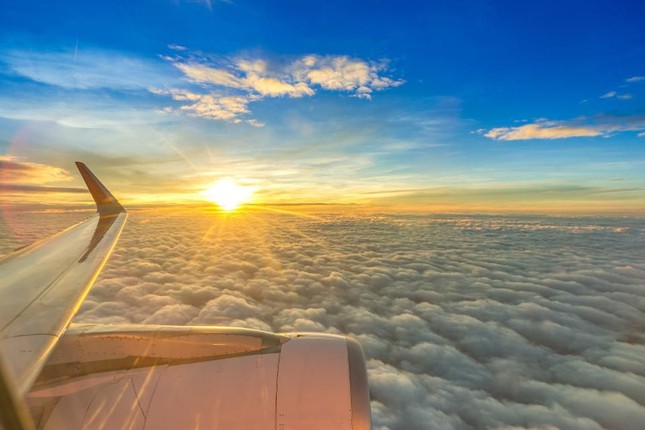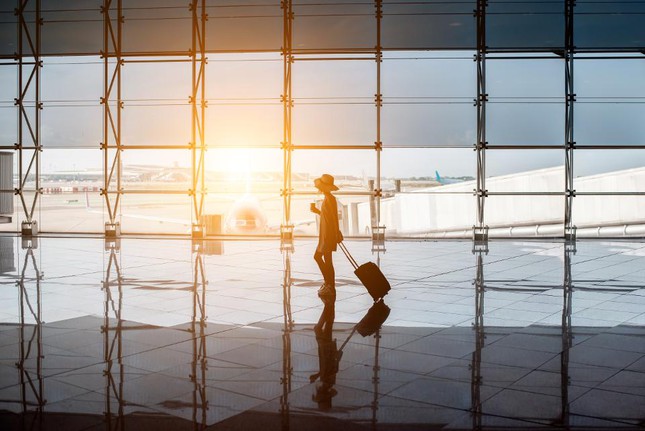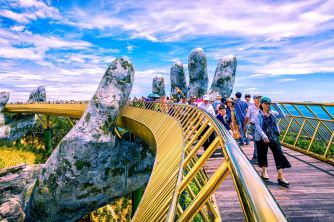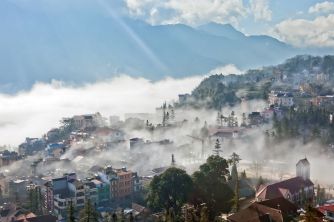Tourism is the first industry to fall into a state of epidemic paralysis, but also one of the industries that are forecast to recover first. However, the trauma of the epidemic will also create new trends that will change this smokeless business.
The data released by the General Statistics Office showed that the number of international visitors to Vietnam in March decreased by 68% compared to the same period last year, bringing the total number of visitors in the first quarter reached 3.7 million, down more than 18% compared to the same period last year. same period. The second quarter results are expected to be even worse when the entire tourism industry is almost paralyzed due to social isolation to prevent epidemics.
Up to the present time, it is still not possible to determine the time when the Vietnamese tourism industry is revived. One thing is for sure, though: the tourism industry will change its skin. "The economic and psychological implications of the epidemic will create a number of new trends in travel planning, selection and organization," market research firm Outbox points out in the newspaper. Report on the plan to restore a tourism destination in Vietnam.

Safety is a top priority for a post-pandemic customer. Photo: Getty Images.
Safety first
Accordingly, the top priorities for post-pandemic customers have changed. Psychological fear of infection will still stick, so safety factors as well as information about the destination's medical qualifications and ability to support the health of the destination will be one of the important factors to help visitors decide destination.
Safety is the main advantage of Vietnamese tourism after Covid-19. Since the disease was first announced in Wuhan, China in December, 2019, it has infected nearly 3 million people and more than 200,000 deaths worldwide.
Vietnam has so far recorded 270 cases of infections and no human damage. Effective prevention as well as treatment is proven to tourists about the safety of Vietnam. "This is also an important basis for the domestic tourism industry to be optimistic that tourism will soon return in Vietnam," said Outbox.
Priority is given to near destinations and short trips
This trend is the result of three difficulties that exist in the current tourism industry: the paralyzed aviation industry, the fear of epidemics and the financial difficulties of tourists. Short-term trips near home are what customers need to temporarily relieve the feeling of "crazy legs" after social relaxation. They help ensure health safety factors, save budget, reduce risks and be more proactive in unexpected situations.
This means domestic tourists will be the first to recover from the pandemic. In terms of proportion structure, domestic tourists account for about 82.5% of the total number of tourists in 2019. Therefore, the trend of choosing to go to nearby locations will be a beneficial factor for the recovery of Vietnam's tourism.

In 2019, Vietnam tourism attracted 18 million international visitors. Photo: Forbes.com.
Price sensitivity As disease ravages the economy, the livelihoods of millions are also seriously affected. In mid-April, the World Monetary Organization (IMF) reduced its GDP growth forecast for Vietnam this year to 2.7% from 7% in January 2020.
The International Labor Organization (ILO) also warned that more than 22 million Vietnamese workers are working in sectors that face a great challenge to maintain the workforce during and after the epidemic. This is also the general situation of the world, when global economic growth is forecasted to be -3% for 2020, according to the IMF; and 195 million full-time jobs will disappear in the second quarter of 2020, according to the ILO.
This bleak outlook will make global residents tend to tighten their wallet and spend more economically. "This will affect the tourism industry and people's ability to prioritize spending on tourism," Outbox said, adding that visitors will be more inclined to choose destinations with products. Package with preferential prices to both relieve psychological after translation but still ensure cost savings.




